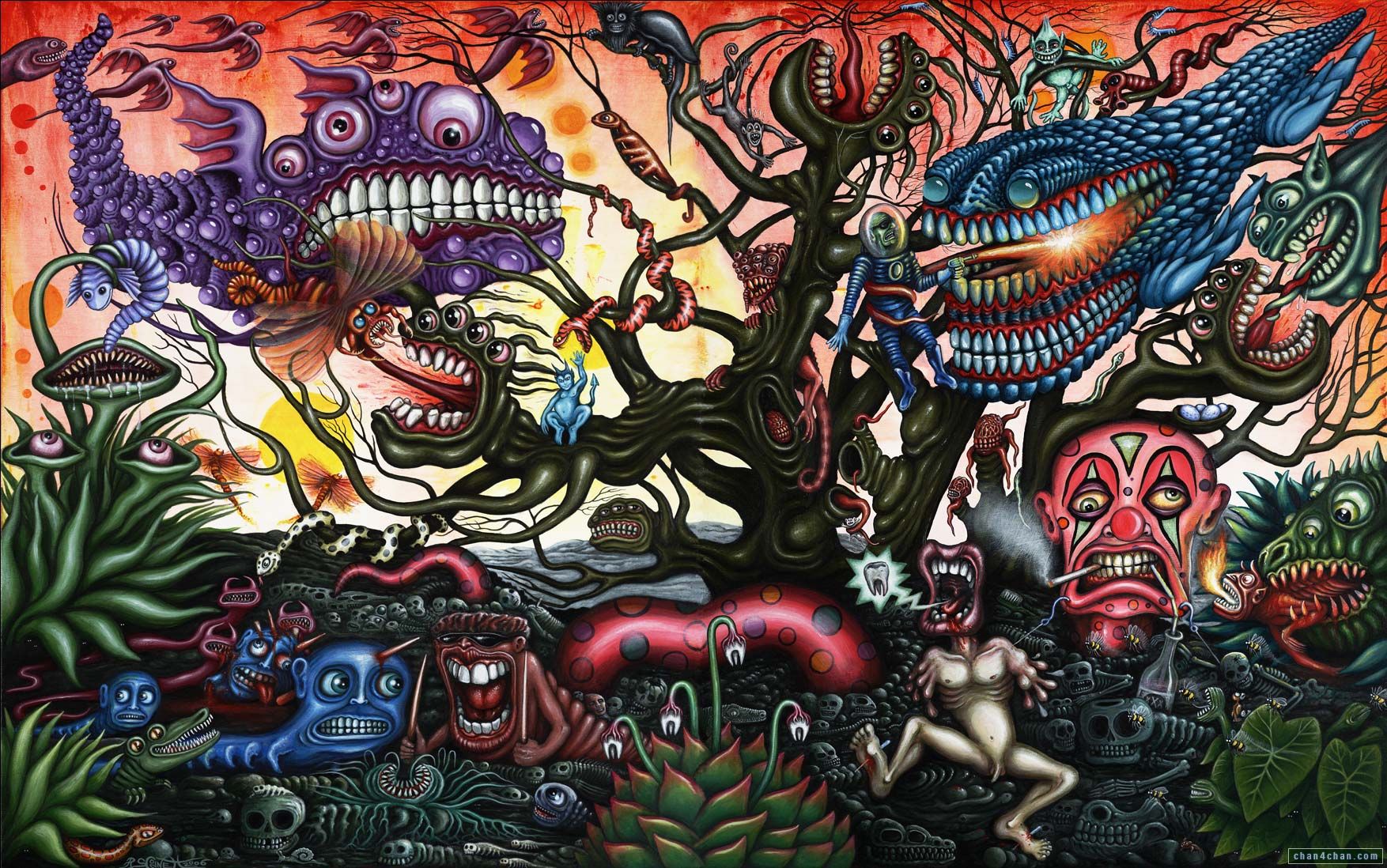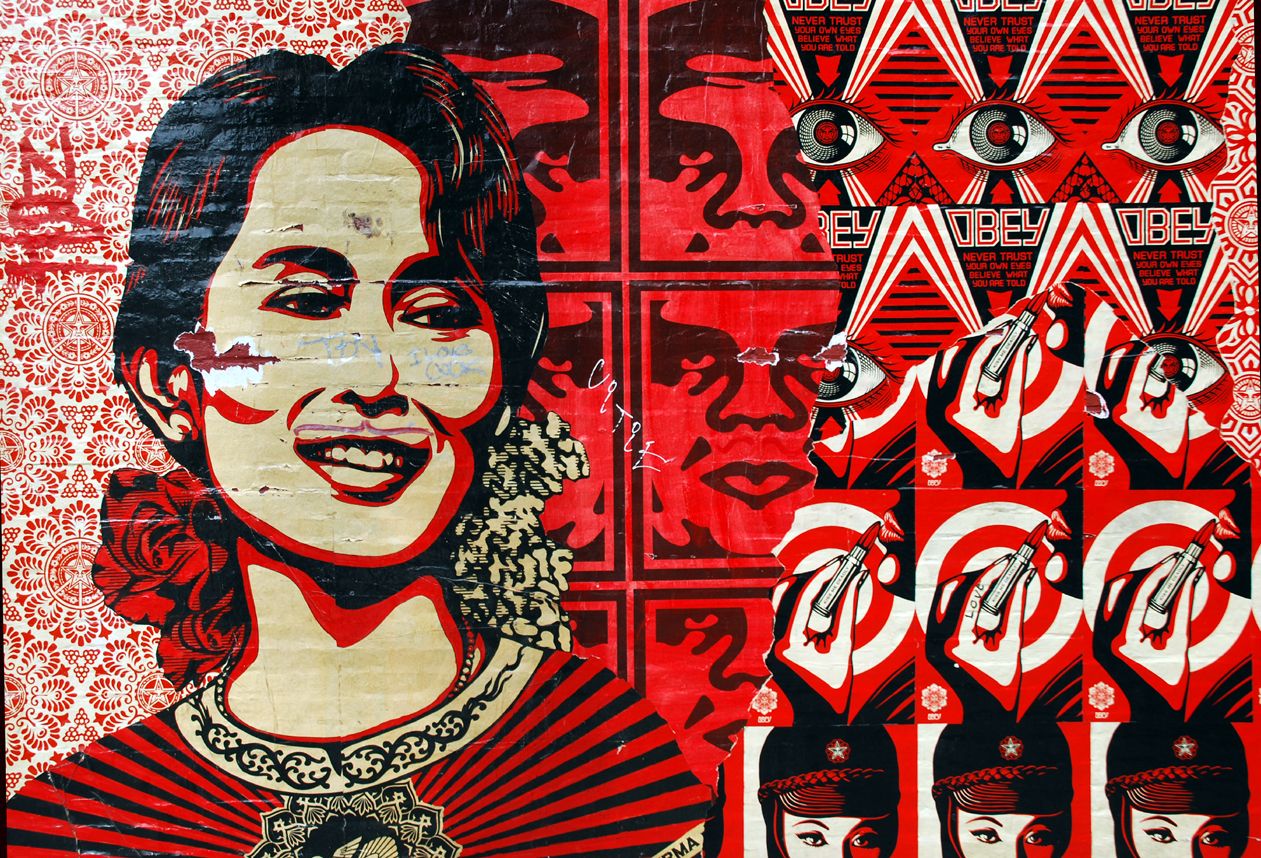What is the everyday mind and why does it sometimes seem like our enemy? Why does it so often turn against us?
The mind is what you use to create yourself! If sometimes it seems like an enemy then remember this! The everyday mind does your bidding. It works on your behalf, it works tirelessly on your behalf…
If you feel that the everyday mind is your enemy then remember that you set this situation up. You asked the mind to create you, with all that this entails, and then you complain about it. You asked the everyday mind to create you, so who is it that is the enemy?
We did it – we invented the machine, we gave it power over us. That is the price we had to pay in order that the machine might do what we wanted it to do, which is to create us. Unless we gave the machine absolute power over us – unless we made ourselves into its helpless slaves – there could be ‘us’. That’s the only way we can get to exist – by giving all our power away, by letting the machine control all the parameters…
In order to exist as this circumscribed self we have to play the game without knowing that we are playing the game. We have to give away our power to the game – we have to allow it to define us, to restrict us utterly. We have to allow it to mould and limit our awareness, to give our awareness the shape it wants for us. We have to let the game condition us, to determine us in all our aspect – only then can we live the life of the compartmentalized self, the life of the encapsulated ego. The game is the machine and the machine is the game – it is the determinate reality we hand ourselves over to on a plate. We make ourselves into the dinner. Please eat me, we say to the machine, please control me – please make me into your plaything.
We did it – we invented the machine, we invented the game. Or perhaps we could put this another way – we let the genie out of the bottle and we made our wish! We made our wish – without any consideration as to how wise it might be – and now we have to live with the consequences. We wished to live the life of the little self, to have this experience, to know what this was like…
From one point of view, we could perhaps say that this is a noble experiment, an experiment that we throw ourselves into without any regard for the consequences. It’s an adventure, we could say, and in one way it certainly is. We have given all our freedom away and let things happen according to the dictates of the game, according to the mechanical rules of the machine which governs our fate. We asked the Great Question – what happens when we give all our freedom away?
From another point of view we could say that what we’re talking about here isn’t really ‘an experiment’ at all, noble or otherwise, because the outcome of what we have done was never in any doubt. The outcome was always going to be the same – when we hand over freedom to the mechanical chain of events then the same thing always happens. That’s the whole point about mechanical processes – that they’re predictable. There’s only one thing that can happen when it’s the machine or the game we’re talking about and that is ‘nothing at all’. Life is a surprise but the game can never surprise us, this being the nature of games. The machine is never going to break its own rules…
We can play a game forever and nothing really happens, nothing really changes. As we have just said, that’s the whole point of a game. That’s what ‘a game’ means – it means that nothing really happens, even though it might seem to. When we go along with the superficial appearances that are generated by the game, in the course of its functioning, then lots of dramas will seem to be happening, but beneath the level of superficial appearances, beneath the theatre of apparent events, nothing is happening at all. When we stop playing a game it is as if we have just woken up from a dream – the dramas were not real.
Nothing really happens when we allow our lives to be defined and determined by the machine – anything that is defined and determined by the machine is sterile, dead. Anything that is defined by the machine is the machine, and the machine is a dead thing. There’s no life in a machine and that’s why we call it a machine – it’s nothing but a collections of rules. Life doesn’t follow dead mechanical rules, only machines do that…
So it’s always the same thing that happens when we hand over our freedom to the game, when we hand over all responsibility to the machine. What happens is that we get split in two, we go down two roads at once. We get split into two distinct levels – the level of nominal truth and the level of actual truth. On the level of actual reality we’re going nowhere, all caught up in unreal dramas and neglecting what’s real; we’re heading down predetermined tracks to certain disaster, like a train about to go off a cliff. How could ‘ignoring the real’ end any other way? On the nominal level of reality, on the other hand, all sorts of fantasies are being played out – some pleasant and some unpleasant, some exciting and some dreadfully tedious.
Lots of different things could happen to us in our imaginations, all sorts of scenarios, all sorts of situations could present themselves, but since the actual underlying reality is always the sterile, deterministic one of the machine, what good is this to us? What good is having pleasant fantasies when the actual reality is always going to bring us down to earth with a bump? What good are activities that just mire us deeper and deeper in the nullity? What good is ‘unreal escaping’ when all we’re doing is setting ourselves up for painful disillusionment? If this is an adventure it’s an adventure in escaping reality – which means that it’s not so much an adventure as an endeavour in escaping the adventure, the only adventure there ever could be. It’s what Joseph Campbell calls the negative adventure.
The game is not really that exciting or varied when it comes down to it. The game (we might say) has only two elements – ‘where we are’ and ‘where we’d like to be’ (or ‘where we’re afraid to be’, if it’s a frightening game). There are the two types of projection that are involved here, in other words – the projection of a positive reality or the projection of a negative reality, something to eagerly look forward to, or something to dread.
We could equally well talk about this in terms of the basic operation of a machine. The most essential operation of any machine is to oscillate between two different states. In most machines there’s a bit more to it than this (inasmuch as there are more defined states to move between) but ‘two states’ defines the simplest type of machine that there could be, and everything else can be extrapolated from this. This is also – of course – the basic operation of logic, and all machine are manifestations of (or concretizations) of logic. It is true that logic (or machines) do not by themselves create illusions, but when consciousness is tied into the operation of the machine (i.e. when it actually creates our reality for us) then positive and negative illusions (or projections) are the name of the game.
The basic model of (or blueprint for) a machine – as we have just said – is made up of two predefined states that are linked by some sort of a logical procedure, some sort of an operational rule that, when satisfied, allows the jump from one state to the other. No simpler explanation of ‘what a machine is’ exists – models don’t come any simpler than this! It is a given – from what we have just said – that there is no real difference between the two defined states. They are only nominally different; they are only different from the point of view of the game that is being played. Both states – after all – equal ‘the machine’. Everything that the machine does or creates or allows equals ‘the machine’…
The point is however that from a purely subjective point of view these two nominally different states will seem very different indeed! When I perceive myself to be one way, in one state or position, then the inherent poverty of this situation (a poverty which is inherent in all constructs of the machine, all possible states of the simulation) will be, in most circumstances, indirectly and misleadingly perceived in terms of the wonderful attractiveness of the other state, the other position, the state or position where I am not. This is – we might say – a basic manifestation of the familiar dictum that ‘the grass is always greener on the other side of the fence’.
This is life from the point of view of the machine, therefore. Whichever state we’re in is always the state where life isn’t; it could hardly be any other way – the machine can’t after all contain life, or simulate life. That’s the one thing the machine most definitely can’t do. We might think that this might prove a problem for a machine whose job it is to simulate life but no – life itself cannot be simulated but the promise of it, the rumour of it can. Life is always just around the corner, always in the pipeline, but never actually arriving (as Alan Watts says), and the seductive appearance of that which is so painfully missing serves very effectively to draw us deeper and deeper into the simulation…
We said earlier that handing over all our freedom to the determinate reality isn’t really ‘an adventure’ for the simple reason that an adventure can never be predetermined. When we hand over all responsibility to the entropic process what inevitably follows cannot be dignified by the term ‘adventure’! This is no ‘Hero’s Journey’ because we’re not going anywhere! There IS an adventure to be had here though, and this adventure (which is the only adventure or journey there is, namely the adventure of discovering reality) starts when we start to find our way out of the determinate reality, out of the dire clutches of the machine, out of the hypnotic, consciousness-numbing coils of the game…
Art: Evil Genie by Ehrnam Djinn






